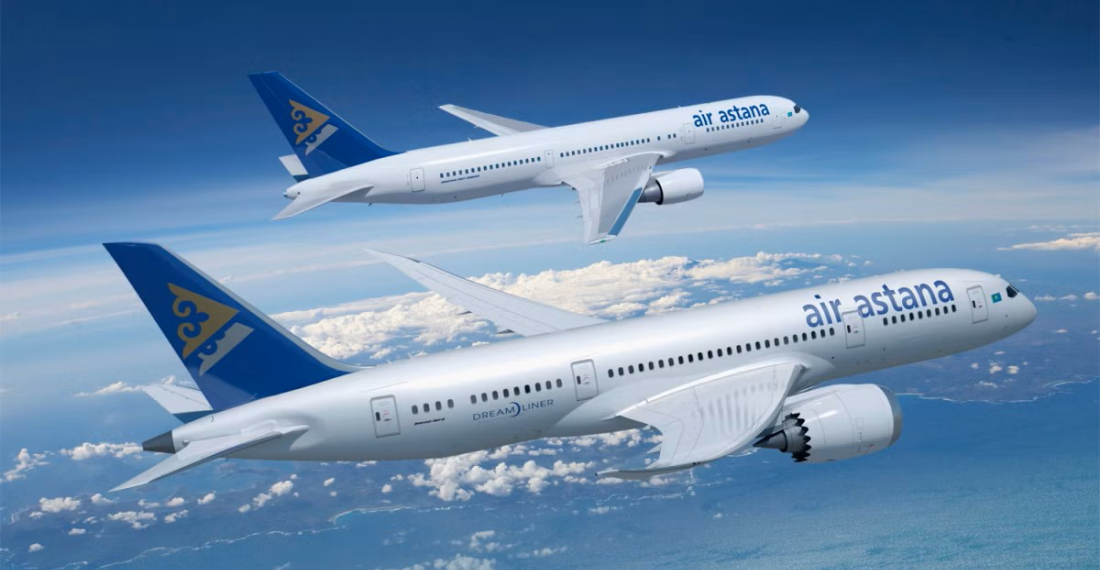Kazakhstan and the United Kingdom have agreed to increase direct flight frequency, from to five to up to fourteen flights per week by the end of the year, reports the Kazakh Civil Aviation Authority (KCAA). This news was released after negotiations in London on 24 and 25 May.
The "importance and complexity" of the negotiations was particularly acute as the current agreement between the UK and Kazakhstan, which allowed for five direct flights per week between London and Almaty, was due to expire on 15 June.
The KCAA writes that there will be up to seven direct flights each per week between any location in the UK and the Kazakh cities of Astana and Almaty by the end of the year, with Air Astana looking to increase the number of direct flights to London to seven per week.
The agreement also allows for up to seven cargo flights per week between the UK and Kazakhstan on an irregular basis.
Increasing the number of flights between Kazakhstan and the UK is expected to accelerate the development of tourism, cultural exchanges, investment opportunities, and business cooperation between the two countries, the KCAA writes.
Kazakh aviation rapidly growing
The agreement struck last week between the UK and Kazakhstan is the latest development in Kazakhstan's rapidly growing aviation sector.
The effective closure of Russian airspace to many western airlines has complicated flights between Europe and Asia, forcing many airlines to fly through Kazakh airspace. Kazakh authorities are now seizing on the country's newfound potential as a crucial air link between east and west by exploring the development of air transport connections between a number of partners.
The EU is looking to increase the number of direct flights between them and Kazakhstan, as are a number of countries in the Middle East. The US has also entered into negotiations with Kazakhstan to establish direct flights between the two, with a video conference meeting having taken place last Monday (22 May) between Kazakh and US officials, reports Trend news agency.
source: commonspace.eu with agencies
photo: Air Astana







